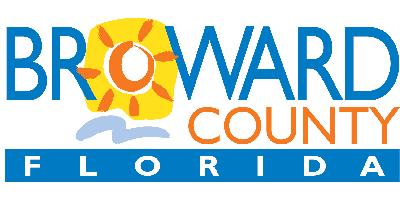The functions listed below are those that represent the majority of the time spent working in this class. Management may assign additional functions related to the type of work of the job as necessary.
Advocates on behalf of clients and families for services, basic needs, and other related issues.
Works with multi-disciplinary team.
Composes or prepares correspondence, case notes, narrative and technical reports, notifications, and related documents using computer-based applications.
Conducts activities and monitors the environment of care in a manner to maximize client or consumer and staff safety.
Conducts community visits related to consumer or client needs as required for area of assignment.
Counsels clients, individually or in groups, and/or their families, to facilitate achieving service plan goals, and developing life skills.
Facilitates case consultation for specialized client situations.
Performs needs and comprehensive assessments; develops or updates care plans, service plans, and/or treatment plans with clients to address their needs and to facilitate referrals to appropriate treatment, service providers, or facilities; engages clients and families in the development of service implementation plans.
Provides crisis prevention, intervention, and supportive counseling as needed.
Provides follow-up and monitors service delivery and care environments.
Provides general information to clients. Coordinates and delivers agency services.
Explains the legal process to clients and family members as it pertains to individual cases; coordinates with local law enforcement agencies and the State Attorney's Office regarding the status of cases.
Testifies at depositions, hearings, and trials as required.
Prepares case records and makes recommendations to supervisor concerning specific cases.
May attend community events to promote and provide education on sexual violence, child abuse, and agency services.
Perform emergency service duties in the event of a County emergency or disaster (e.g., staffing a shelter prior, during or after a hurricane).
Performs related work as assigned.
Competencies
Makes sense of complex, high quantity, and sometimes contradictory information to effectively solve problems. Looks at complex issues from multiple angles; explores issues to uncover underlying issues and root causes; sees the main consequences and implications of different options.
Makes good and timely decisions that keep the organization moving forward. Knows when to act independently and when to escalate issues. Integrates various inputs, decision criteria, and trade-offs to make effective decisions. Typically makes good independent decisions.
Plans and prioritizes work to meet commitments aligned with organizational goals. Outlines clear plans that put actions in a logical sequence; conveys some time frames. Aligns own work with relevant workgroups. Takes some steps to reduce bottlenecks and speed up the work.
Holds self and others accountable to meet commitments. Tracks performance and strives to remain effective, learning from both successes and failures. Readily takes on challenges or difficult tasks and has reputation for delivering on commitments.
Relates openly and comfortably with diverse groups of people. Recognizes even subtle social cues and nimbly responds to others' needs and preferences. Helps to defuse difficult interpersonal situations by showing high levels of tact, sensitivity, and consideration. Builds rapport with ease.
Develops and delivers multi-mode communications that convey a clear understanding of the unique needs of different audiences. Disseminates knowledge, insights, and updates in a polished, precise, and compelling manner. Demonstrates a deep interest in others' comments. Creates rich documents and reports.
Learns through experimentation when tackling new problems, using both successes and failures as learning fodder. Swiftly incorporates new concepts and principles into own expertise; skillfully uses these fresh insights to solve problems. Shares learning from own mistakes with others.
Adapts approach and demeanor in real time to match the shifting demands of different situations. Takes steps to adapt to changing needs, conditions, priorities, or opportunities. Understands the cues that suggest a change in approach is needed; adopts new behaviors accordingly.
County Core Values
All Broward County employees strive to demonstrate the County's four core behavioral competencies.
- Collaborates: Building partnerships and working collaboratively with others to meet shared objectives.
- Customer focus: Building strong customer relationships and delivering customer-centric solutions.
- Instills trust: Gaining the confidence and trust of others through honesty, integrity, and authenticity.
- Values differences: Recognizing the value that different perspectives and cultures bring to an organization.
Americans with Disabilities Act (ADA) Compliance
Broward County is an Equal Opportunity Employer committed to inclusion. Broward County is committed to providing equal opportunity and reasonable accommodations to qualified persons with disabilities. We support the hiring of people with disabilities; therefore, if you require assistance due to a disability, please contact the Professional Standards Section in advance at 954-357-6500 or email Profstandards@broward.org to make an accommodation request.
Emergency Management Responsibilities
Note: During emergency conditions, all County employees are automatically considered emergency service workers. County employees are subject to being called to work in the event of a disaster, such as a hurricane, or other emergency situation and are expected to perform emergency service duties, as assigned.
County-wide Employee Responsibilities
All Broward County employees must serve the public and fellow employees with honesty and integrity in full accord with the letter and spirit of Broward County's Employee Code of Ethics, gift, and conflict of interest policies.
All Broward County employees must establish and maintain effective working relationships with the general public, co-workers, elected and appointed officials and members of diverse cultural and linguistic backgrounds, regardless of race, color, religion, sex, national origin, age, disability, marital status, political affiliation, familial status, sexual orientation, pregnancy, or gender identity and expression.
 Broward County, Florida
Broward County, Florida $56,594.07 - $90,324.66 Annually
$56,594.07 - $90,324.66 Annually
 medical insurance, dental insurance, life insurance, vision insurance, vacation time, paid holidays, sick time, retirement plan
medical insurance, dental insurance, life insurance, vision insurance, vacation time, paid holidays, sick time, retirement plan

 Oct 25, 2025
Oct 25, 2025 

